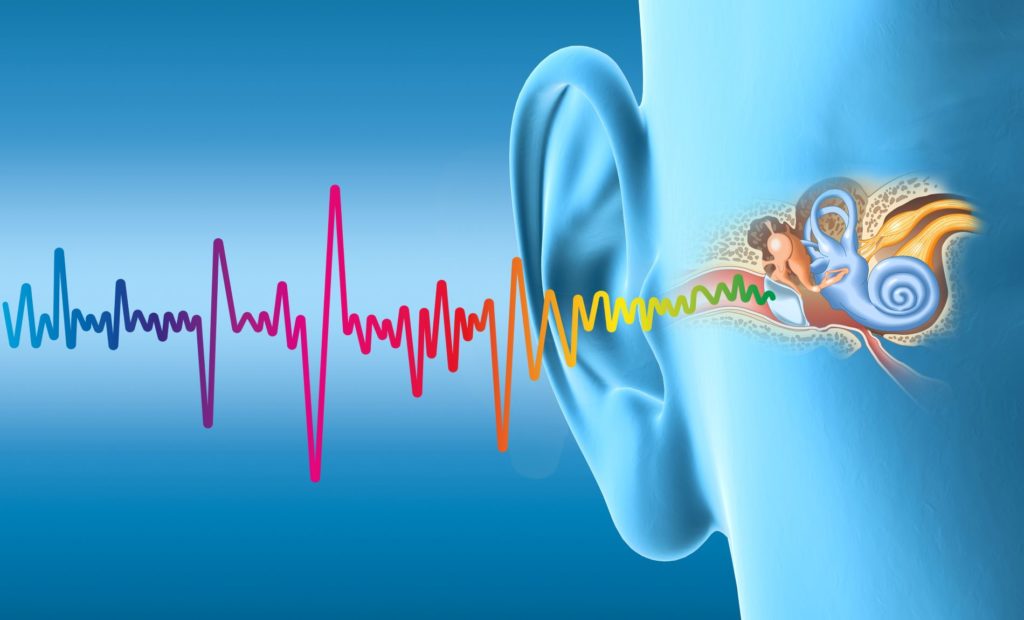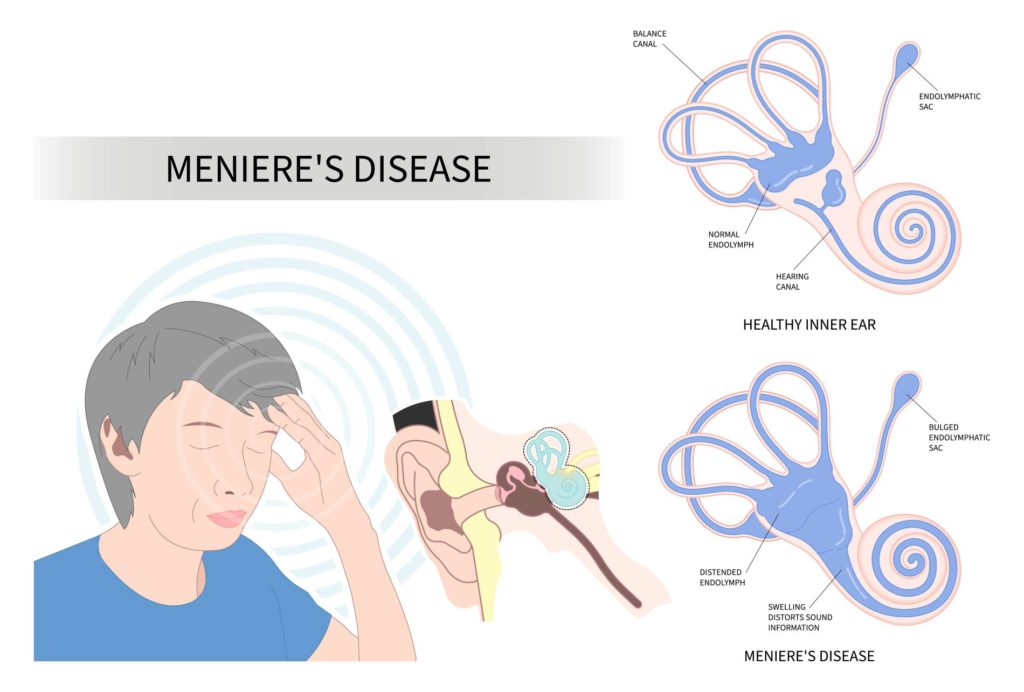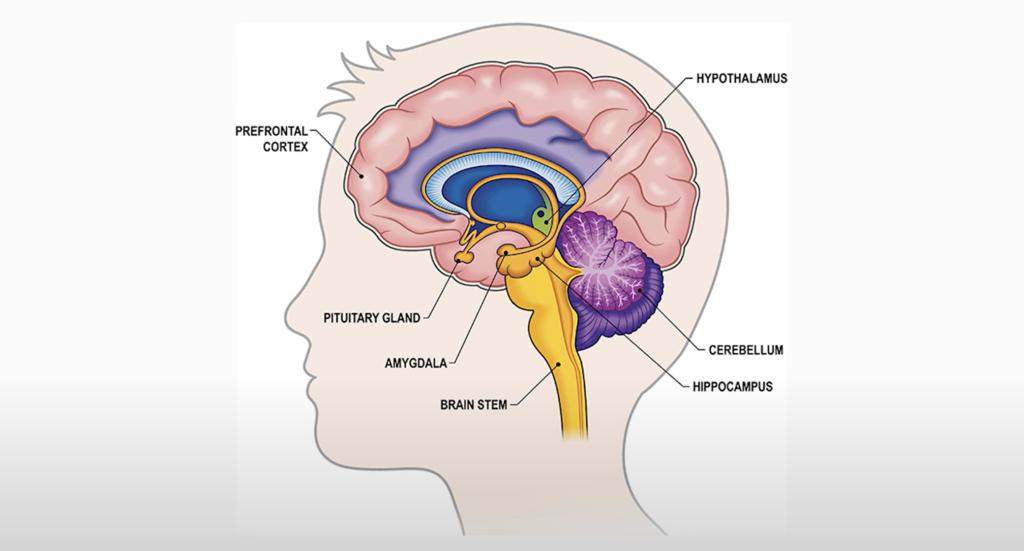Central vs Peripheral Tinnitus: Everything you need to know
Did you know, there are two different types of tinnitus? One of them originates from your ear, and the other one doesn’t.
In this blog, you’ll learn everything about both of them, along with the best tinnitus treatments for each.
Understanding tinnitus
So, what exactly is tinnitus? In its most basic form, tinnitus is the perception of sound or various sounds in one or both of your ears or even from somewhere within your head, which isn’t being produced by something present in the environment around you.
It is way more common than you realise, with 10 to 15% of the US population alone reporting that they have some form of tinnitus.
Whilst there are many different layers to tinnitus, if we break it down, it can be categorised as originating from one of two main places: either peripherally or centrally.

Peripheral tinnitus and its causes
Peripheral tinnitus originates in your ear and is specifically caused by issues within your auditory system, as far as the cochlea. It’s typically caused by issues that directly affect your ears, and there are four pretty common conditions that can cause it.
Ear wax
First of all, earwax. Yes, as ridiculous as it sounds, I regularly see a ton of patients who are experiencing tinnitus. Of course, the first thing that any audiologist will do when someone sits down in their room is thoroughly examine their ears. And you know what? I love it when I come across an ear full of wax with someone worried about tinnitus because it’s the easiest form of tinnitus to treat. A few minutes of performing either microsuction or irrigation and voila, this may well eliminate your tinnitus.
Ear infections
The second cause of peripheral tinnitus is infections in the outer or the middle ear, also known respectively as otitis externa and otitis media. It is possible, but not always the case, that they’ll cause pain, inflammation, and/or a fluid buildup behind your eardrum. As a result, this can also interfere with your hearing in either your outer or middle ear, which can again lead to tinnitus.
Hearing loss
This leads me to the most common cause of peripheral tinnitus, which is hearing loss. Other than hearing loss caused by infections, there are other causes too, such as age-related hearing loss, which is just general wear and tear known as presbycusis, or even noise-induced hearing loss, which, believe it or not, is 100% avoidable.
This is caused when you’re exposed to loud sounds and don’t wear any hearing protection, whether you’re partying, doing some shooting, or working in a particularly noisy environment.
Meniere’s Disease
For those of you who haven’t come across the condition before, it is a pretty horrible thing to experience. You’ll know if you’ve got it due to the very specific symptoms, which include vertigo and dizziness, hearing loss, and then the subject of today’s video, which is obviously tinnitus. It’s caused by endolymphatic hydrops, an abnormal buildup of fluid pressure within your ear.

Central tinnitus and its causes
Quite differently from peripheral tinnitus, central tinnitus is thought to originate from within the auditory centres when the tinnitus-related activity does not pre-exist within the cochlear nerve. These different types of tinnitus require different types of treatment, which I’ll come on to shortly.
One thought behind central tinnitus is that it appears due to the lack of stimulation that presents with hearing loss. The theory is that if the auditory system is deprived of normal input, the central auditory pathways undergo changes, with neurons in the auditory cortex becoming hyperactive and hypersensitive, leading to the perception of tinnitus.
Emotional impact on tinnitus perception
One of the fascinating things about this is that this hyperactivity is often exacerbated, making your tinnitus worse if you (A) focus on your tinnitus or (B) experience anxiety or stress. This demonstrates that tinnitus is worsened by your emotional state, with studies showing that the areas of the brain involved in emotion, such as the amygdala and also the limbic system, play a crucial role in central tinnitus.
This explains fully why stress and anxiety can intensify your perception of your tinnitus. There is some incredible research in this field demonstrating that central tinnitus can involve changes in the spontaneous firing rate and synchrony of neurons in the auditory pathways. This has been demonstrated using functional MRI and PET scans, showing increased activity in the auditory cortex and limbic system for those with tinnitus, again fully supporting the idea that tinnitus is not just an ear issue but also a brain issue.

Tinnitus treatment
Of course, when thinking about the best treatment for your tinnitus, it’s important to understand where yours originates from: is it central, or is it peripheral? For peripheral tinnitus, you have to start by treating your ear condition. For central tinnitus, it’s important to focus on managing your stress, anxiety, and cognitive response to the tinnitus, along with any other elements that contribute towards it in your life.
Now, that isn’t to say that this is a one-size-fits-all approach, and I will say that there’s definitely a crossover between these treatments too.
Treating peripheral tinnitus
It’s safe to say that these are the easiest issues to treat. For example, removing earwax if you have an earwax buildup, taking antibiotics or antifungal medication, or sometimes surgery if you have an ear infection, being fitted with hearing aids if you have a hearing loss, or managing a vestibular disorder with the most appropriate treatment for your particular condition.
Central tinnitus treatment
In my opinion, treating central tinnitus can be far more complex and may often involve a multidisciplinary approach. I personally have a team of audiologists specifically trained in this form of hearing therapy, and they focus on three key areas.
Stress management techniques
First of all, they start by focusing on stress management techniques, using cognitive behavioural therapy, mindfulness meditation, relaxation exercises, or even a combination of all of these. They are well-researched as being the most effective treatment for tinnitus, helping you manage the emotional aspects of your tinnitus.
Sound therapy treatment
The second area of focus involves sound therapy treatment, which can be done using different types of noises, whether that be white, brown, or pink noise, nature sounds, or even wearing hearing aids to fill the void associated with the hearing loss. All of these should technically help to mask the sound of your tinnitus.
Medication
Finally, in cases where the first two phases haven’t helped, medication may be necessary to treat your anxiety or depression and can help to suppress the negative impact that your tinnitus is having on you on a daily basis.
If you are experiencing tinnitus, it’s crucial to get a proper diagnosis to determine whether it is central or peripheral. Harley Street Hearing’s team of clinical audiologists can help, contact us online for an appointment or call us on 020 7486 1053.
Central vs Peripheral Tinnitus: What You NEED to Know Video
Matthew Allsop is a Partner at Harley Street Hearing and the content creator for Hearing Tracker, where he shares his honest opinions on all things to do with hearing health and hearing aid technology. Hearing Tracker is the world’s first truly independent resource for hearing aid customers. You can watch his video on central and peripheral tinnitus below.
Enjoy this article? You might be interested in some of our others:












